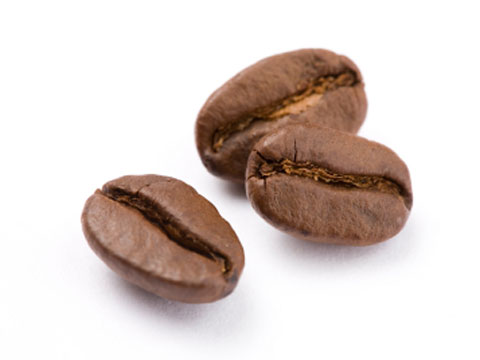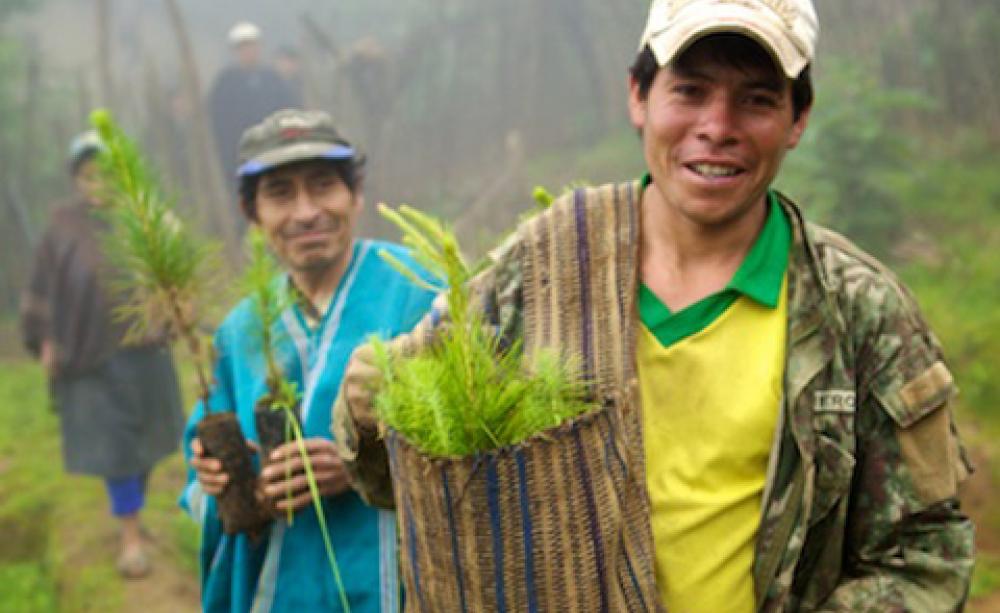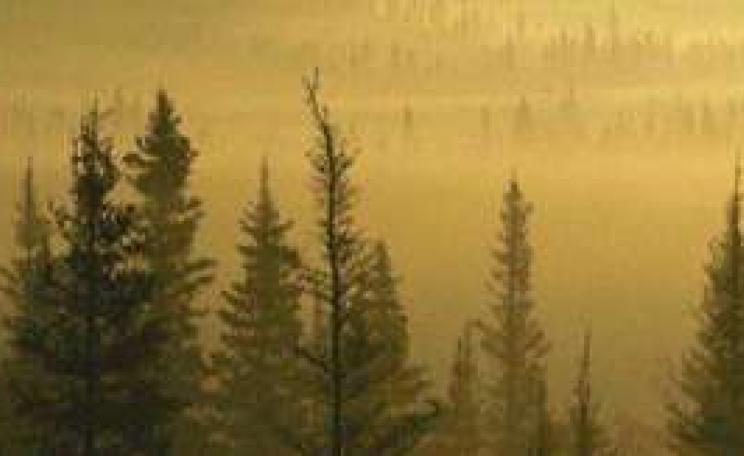In the brightly lit upstairs ‘laboratory' of the Norandino coffee plant in the regional capital city of Piura, ‘cupping' is serious business. Specially trained ‘cuppers' smell and taste the freshly roasted and ground coffee beans, helping determine a coffee's ranking in a complicated point system. Here, virtually all of the coffee in Peru's northern Piura region is processed and controlled for quality before some 90 per cent is sent for export.
Martin Dominguez, Norandino's plant manager says weather changes are taking a toll on coffee quantity and quality. ‘In 2007-8 the coffee beans were smaller, from a particularly dry season. When we have more sustained rains, the beans are bigger and heavier. Dry years also mean more pest infestations, which can take out up to five per cent of production. You can see a variety of changes, all have quality implications.'
Thousands of smallholder coffee farmers scattered throughout the Andes Mountains are learning how to adapt to extreme weather through a project spearheaded by Fairtrade brand Cafédirect. They are learning how to better manage shade trees and soil fertility on steep hillside farms, adopting biological pest controls and repairing water channels to help irrigation in times of drought. But the farmers also came to realise that deforestation in a region 2,000 metres above them affects rainfall patterns and leaves them exposed to flash floods and soil erosion.
Subsistence farmers in the remote Choco village had over decades practised slash and burn agriculture to provide firewood and land to grow crops such as potatoes and corn for their families. The question was how to incentivise the people of Choco to manage their forests in the long-term.
 ‘Simply donating the funds to plant trees might have provided short term relief, but what would happen when those trees were needed for firewood or building?' asks Cafédirect's head of sustainability, Wolfgang Weinmann.
‘Simply donating the funds to plant trees might have provided short term relief, but what would happen when those trees were needed for firewood or building?' asks Cafédirect's head of sustainability, Wolfgang Weinmann.
Weinmann is the first to admit that carbon trading justifiably has its critics, many carbon credits schemes prone to failure or corruption. Yet in teaming up with a specialist Peruvian agricultural NGO, Progreso, they drew up a plan that would help the communities themselves sustainably manage the forest instead of ‘waiting for the UN,' says Weinmann.
 In the ‘Reforestation Sierra Piura' project Choco villagers are paid to plant seedlings and manage tree nurseries. For every tonne of carbon captured by the new trees they receive one carbon credit. Credits can be sold on the international voluntary carbon market. Cafédirect committed to pre-finance the project to get it off the ground, investing £55,000 over six years for 5,092 carbon credits. For each credit sold, 90 per cent of the revenue goes to Choco to fund further reforestation. The other 10 per cent funds further adaptation projects for the coffee farmers down the mountain.
In the ‘Reforestation Sierra Piura' project Choco villagers are paid to plant seedlings and manage tree nurseries. For every tonne of carbon captured by the new trees they receive one carbon credit. Credits can be sold on the international voluntary carbon market. Cafédirect committed to pre-finance the project to get it off the ground, investing £55,000 over six years for 5,092 carbon credits. For each credit sold, 90 per cent of the revenue goes to Choco to fund further reforestation. The other 10 per cent funds further adaptation projects for the coffee farmers down the mountain.
So far, over 224 hectares have been reforested, 70 per cent of the trees planted are pine and 30 per cent native quinal. The community owns the land and by reforesting it the villagers are provided an income and an incentive to sustainably manage the forest.
 In July 2011 the project's carbon credits were certified by the CarbonFix standard. A second tranche of funding came when Cafédirect's Irish commercial roasting partner Bewley's switched its carbon credit supplier to the Reforestation Sierra Piura project. All told, they are aiming for enough financing to grow the reforested area from its initial 224 hectares to 5,000 hectares. Weinmann says, ‘Everyone always says, "OK a small company like Cafédirect can do this, but can you scale it up?" Surely big brands like Nestlé should understand that we are not a charity, we are a business. This is about shared value. There is something in it for us.'
In July 2011 the project's carbon credits were certified by the CarbonFix standard. A second tranche of funding came when Cafédirect's Irish commercial roasting partner Bewley's switched its carbon credit supplier to the Reforestation Sierra Piura project. All told, they are aiming for enough financing to grow the reforested area from its initial 224 hectares to 5,000 hectares. Weinmann says, ‘Everyone always says, "OK a small company like Cafédirect can do this, but can you scale it up?" Surely big brands like Nestlé should understand that we are not a charity, we are a business. This is about shared value. There is something in it for us.'
| READ MORE... | |
 |
NEWS ANALYSIS Keeping our daily coffee: the farmers in Peru adapting to climate change Shade-grown, hand picked coffee is one of Peru's biggest exports, but the country's smallholder farmers face sustained crop losses from extreme weather. Matilda Lee reports from Peru |
 |
HOW TO MAKE A DIFFERENCE CASE STUDY: Growing coffee more sustainably in Costa Rica It's not organic but ‘pro-environmental sustainable' farming practices could help coffee farmers move away from damaging industrial monoculture |
 |
SPECIAL CONTENT EFU Film: Food speculation – how betting on food commodities fuels Mexico’s tortilla crisis A surge in financial speculation on maize is causing vastly inflated prices for corn tortillas - a sacred staple in Mexico - and threatening the health and livelihoods of the country's poor. Tom Levitt investigates |
 |
HOW TO MAKE A DIFFERENCE Paraguay's small farmers defend livelihoods against industrial soya production A new film, Raising Resistance, gives a telling account of how Paraguay's small farmers are suffering social and environmental ills from the country's meteoric rise in soya farming |
 |
HOW TO MAKE A DIFFERENCE 10 ways to save money on food without compromising your principles In an extract from her new book What to Eat, investigative journalist Joanna Blythman offers top tips on how to make your food pound go further without scrimping on what you believe in |







